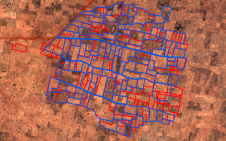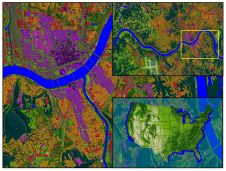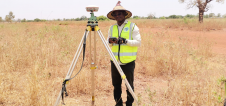Enslavement
In recent decades, many international institutions have promoted land titling as a means of increasing tenure security, improving access to loans and reducing poverty in developing countries. The World Bank was confident that titling would increase investment, improve productivity of land through mortgaging, and establish efficient land markets - all subjects related to monetary issues. The use of property titles as collateral in accessing credit stemming from banks, credit unions and lending societies was considered a means for the poor to elevate themselves without the need for grants and anti-poverty programmes from international donors. But what has been the impact of all these efforts to promote titling, and the ensuing erection or improvement of land administration systems, on eradicating poverty and hunger in developing countries - the first of the Millennium Development Goals? It appears that the results have been modest. As far back as August 2006,The Economistobserved that banks tend to lend only to people with high wages and stable jobs. Such an attitude reminds me of the old adage, "A banker is a fellow who lends you his umbrella when the sun is shining, but wants it back the minute it begins to rain," - a saying commonly attributed to Mark Twain. For those who own land but are poor, the costs are disproportional to the modest amounts banks will allow them to borrow. Researchers have found no evidence that poor groups in Africa seek to use land titles as collateral. And more generally speaking, smallholder farmers or low-income urban dwellers in developing countries do not use their land titles to access loans. The literature suggests further that while titles do increase tenure security, they have not substantially reduced poverty or increased access to loans. Why not?
一个重要的原因是,许多低收入的主人of real estate feel that they risk losing their foremost major asset - their immovable property - when using it as collateral in exchange for a loan. Indeed, mortgage is a word of French origin meaning ‘death contract', which does not sound particularly inviting nor reassuring. ‘The best mortgage is no mortgage,' might well be the wisdom of the poor. In our present monetary system, all currency is created as debt. But a loan, created out of thin air by a bank, comes with a cost called interest, and this is the gain that banks make. A loan puts a household in debt for a long time. Who benefits most from a loan: the issuing bank or the low-income farmer or urban dweller? The hand that gives is higher up than the hand that receives, meaning that the borrower is servant to the lender. "Debt is the money of slaves," as Norm Franz wrote in his bookMoney and Wealth in the New Millennium, published in 2001. Debt does not elevate the poor, but only enslaves them further.
Make your inbox more interesting.Add some geo.
Keep abreast of news, developments and technological advancement in the geomatics industry.
Sign up for free
























